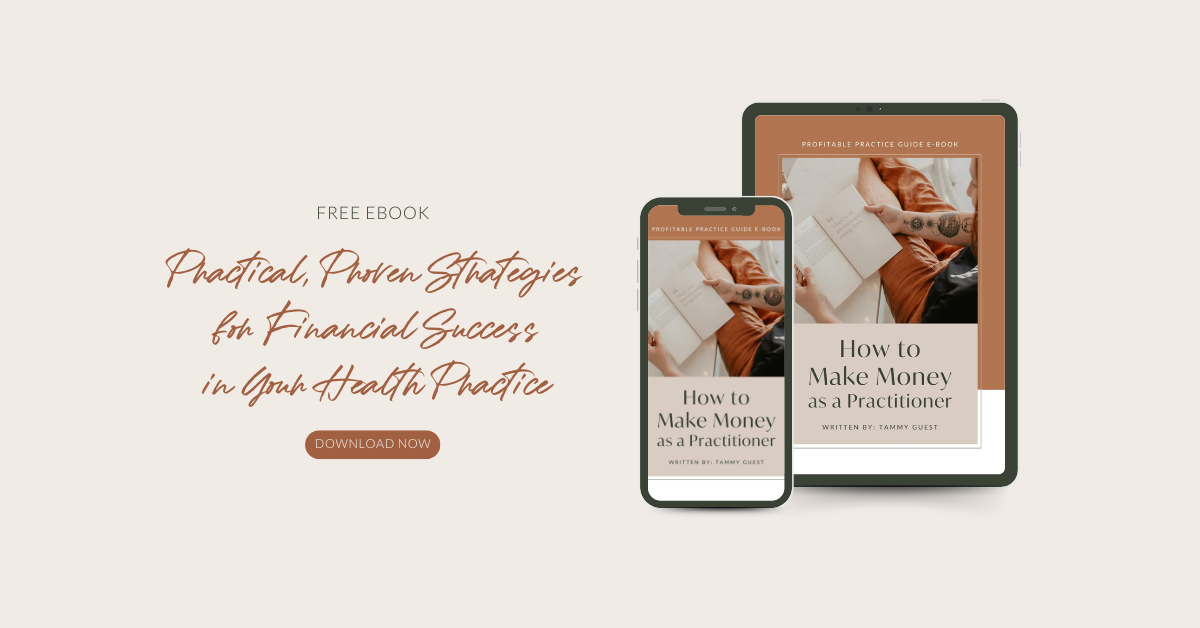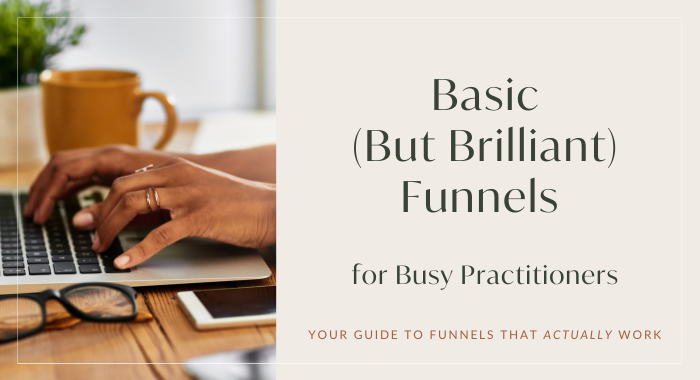High-fives to anybody who is now working from home due to the current global events. What a rapid change that has been thrust upon our industry. I’ve been working digitally for a number of years now, and let me tell you, this new way of doing business does take some time to get used to. So if you haven’t got it all figured out just yet, that’s okay! Give yourself a break and take it one step at a time.
Back when I first considered working from home, I had a big, multi-modality practice. We had 9 practitioners or part-timers and we ran workshops on a weekly basis there plus I continued to run retreats and conferences and other workshops. I was so scared about having to work from home after I sold my practice. Since making the move to online, I haven’t looked back! It’s awesome!! But it does require a few key things to be in place so that you can work from home without going crazy!
As I’ve been doing this working from home thing for a while now, I wanted to share with you some of the things that have helped me stay sane, the things that I was most fearful about working from home, and how you can overcome them.
Watch the video or read below for my top tips for working from home.
Does the idea of Working From Home freak you out?
Some people love the idea of working from home, and that’s super cool. But when I first considered working from home, it didn’t really float my boat. I worried about things like:
- What’s gonna happen?
- How can I keep it professional?
- What if there are people in the background putting the things in and out of the fridge when I’m on a call?
- There might be people making noise, wandering around, pushing my buttons!
- How will I get my adult time away from the kids if I’m home all the time?
So you might be thinking the same thing and freaking out, even though so many of you in this community are also home-schoolers and epic Superwomen in other ways. But if you’re a little bit fearful about it, like I was, then this article is for you.
6 Tips To Get Over the Fear Of Working From Home
Just thinking about something is really different from living through it and realising the lessons on the other side, right?
It’s the same as with any other part of our business when we start thinking about doing it before we go ahead and do it. So after living the experience of working from home for the past five years, here are my top six tips on working from home and doing it successfully.
Here’s the thing – my and my husband’s businesses are thriving and our kids are thriving. And the way I interact with my husband is so much fun because we get to see one another more. So I’m going to share with you what works for us.
Tip #1 Time Management
I have an actual hourglass that actually tracks one hour. It is so useful to me that I gifted one of these to every single person who came to NatEx 2020. It’s all about focusing attention for one hour to get things done.
One of the big things we teach in the Naturpreneur Journey is around how we get to every Friday and wonder, “Oh! Where did my week go?”
In 15-minute increments, our weeks just disappear. Because we’re:
- mulling over random things
- listening to negative thought patterns we might have
- wasting time on comparisonitis
- going into a death scroll on social media
In actuality, these 15-minute increments or one-hour increments can be so much more useful if we would actually prepare for it. Prior preparation prevents poor performance.
How can we manage our time, particularly when we’re working from home?
Create A Plan
My suggestion is to get some kind of planner or make sure that you have a plan for your day or week.
I love different planners I’m a huge kikki.K freak and stationery hoarder! If you want to do a monthly one, I happen to have one for free download, which also includes the health days of the week. If you’re planning your time out, it’s a much easier way to be able to communicate what’s happening in the house.
For instance, right now we have my 17-year-old with three of his friends, my 10-year-old, my 22-year-old, and my husband all in the house. But because we’re all aware of what parts of the day each of us is doing things, it’s nice and quiet in this part of the house. It’s easy for my hubby to record his podcast in the other part of the house.
The only one who doesn’t agree with all of this is my dog – who’s over there trying to get outside!
Having a plan not only allows you to be clear on what you want to achieve by the end of the day, but it also creates a level of control about what’s happening. Rather than just being open to the flow of the death scroll on social media, or what’s happening in the news, or getting into a Netflix binge.
All these things have their time and their place. But if you start to start to have those notions in your head about, “Where did my week go?” or “What did I actually get done today?” then you need a plan.
If you:
- stay on the front foot and proactive in what you want to achieve in your week
- want to create time and space for your family and other things
- feel like you’ve actually done something for your income and clients
Then you want to be proactive rather than reactive to things that are happening in your house, that people are asking you to do, or what’s coming into your inbox.
Be Proactive, Not Reactive
At my house, we actually created a family planner for what’s happening in the mornings because we’re all more productive in the morning. So our family plan is based around our cycles. For instance, today:
- My daughter did her one-hour gym session out on the home gym
- Elliott’s doing reading and maths and all this other stuff
- And I’m here really productive, creating different things and in active mode
But my brain totally shuts down at about two o’clock. When people send me messages after two on email, I just poop out.
So if we can create a schedule in alignment with our strengths and our cycles of energy, then we’re better off as a family. We can follow through later in the afternoon with things like playing chess and backgammon for family and connection time. We’ve also got some card games out to have at dinner and things like that.
You want to schedule both your business and family activities. The priority is to keep your business going and what that means is you’re either:
- servicing current clients
- acquiring new clients
- or trying to scope out for future clients
So you’ve got to make sure that those things are looked after. At the same time, of course, as your health, your well-being, and your family. If you’re proactive about it rather than reactive, you’re going to have a much better chance of actually achieving all of that.
Tip #2 External Accountability
When I first started working from home, I didn’t realise that it’s not a 9-5 gig. It’s not like going to a clinic or an office. You’re in charge of your time, so you can choose your hours, which makes it really easy to be lazy.
What works for me is external accountability so that I show up for particular things. Notice that I actually have a little dash of makeup on today, because I’m turning up for you, now.
Here’s the sneaky truth of it, though! I’ve got my makeup on, and my work clothes (which I got to choose), but I also have my Uggies on!
So that’s the thing, right? You get to choose, but you still need to externally hold yourself accountable so that you show up and feel like you’re at work. Because if you don’t fix yourself up, feel like you’re at work, it’s super easy to go into the social media death scroll. It’s super easy to decide that today’s a pyjama day on Netflix.
And it’s super easy for that to rub off on your kids, as well, if you have them home right now or you are homeschooling them.
Find Something To Show Up For Every Day
My suggestion is to find something to show up for every day, so that you have that external accountability.
You can show up daily for:
- your Facebook live
- Zoom calls
- phone calls
- or whatever it is for you
Actually go and have the shower, get out of your pyjamas, and put a bra on, if that’s your thing. Do the things that you need to get yourself in that work mode. Because, without it, it’s super easy to let everything slide.
Little excuses are always going to be hidden over your shoulder and it’s much easier to listen to those excuses if you don’t feel like you’re at work. Just a suggestion.
#3 Show Up
Number three is to show up. Show up for work. You are your boss. I’ve done training on this before, but you have ‘boss time’ and ’employee time.’
When you show up as the boss, you’ll show up in a different way from showing up as the employee who gets the work done. You need to look after both of those modes when you’re your own boss. You need to show up as the boss, and then you need to show up as the employee and get the stuff done.
If you don’t show up, then it all just starts to slide. Your current clients won’t get looked after, the clients you are looking for won’t find you, and clients that you want to reinvigorate from the past might not be there to listen to you because you haven’t shown up persistently and consistently.
I can’t bang on about this enough. Don’t completely disappear right now.
I know it’s a quiet time for many of us. The world wants a break and all that kind of stuff. But we’re in the health field, right now. People are in a health crisis and a stress crisis and we need to show up. We need to show up at work, and at the moment, our work is online. So show up.
It’s really super easy to feel like you don’t want to show up. You get out of bed in your pyjamas and no one is there to tell you:
- that you have to have a shower
- you need to get ready for work
- to get ready and do the Zoom call you scheduled instead of just a phone call in your pyjamas
There are tons of excuses literally just there in the back of your mind. Until you put your boss britches on and then put your employee ‘get it done’ mode on, that stuff doesn’t get done.
It’s easy for it to slide so – show up. This is a real business that you’re running and you’re continuing to run it, you just happen to be in a different location.
You may have different tricks to get into Show Up Mode. It might be:
- putting your bra on
- having earrings on
- wearing high-heeled shoes
Whatever is your “work uniform,” that’s what you need to find to wear at home so that you work.
#4 Communicate Your Needs
This is a big one. This is really important, especially if you don’t have the house to yourself.
It is hugely important to talk. The people in your house don’t:
- know about your schedule
- have your calendar at the front of their mind
- understand your needs for your space to be taken up only by this (and not the Frisbee, the Legos, the computer, or the TV)
Unless you communicate it. Communication is a two-way street and we continually forget about this.
As women, we tend to expect everyone to know what we’re thinking about, but they don’t. They have no idea what’s going on in our heads unless we speak it.
Then, when we speak it, we think that it should be a one-way direction and there shouldn’t be anything on the way back. But communication is a cycle. So it goes A to B and then it’ll continue to flow. But if you don’t communicate your needs, then your expectations won’t be met.
You’ll be annoyed, frustrated, and wondering why people aren’t thinking about you and your needs. It’s because they’re thinking about their own stuff in their head. If you’re making up stories about what’s going on in their heads, then they aren’t able to communicate back.
When you make sure that people understand what you need and the time-frame you need from them, then expectations are set. Then, when they’re either met or they aren’t met, you can have a conversation to reinstate those expectations or recommit to a new expectation.
It’s as simple as that. We don’t need to get all frustrated or disappointed with one another. It’s just about communicating your needs, determining whether or not they can be met, and negotiating to come to a new agreement or commitment, if needed. Once that commitment is set, see what happens. Sometimes it’s met and sometimes it’s not. But then you can come to a new recommitment.
Otherwise long term, it’s really difficult to hold a space at home. Communication and communicating your needs is hugely important. Your needs might be things like:
- sharing the microphone
- not putting the kettle on in the background when you’re talking online
- not coming into the room when you’re on your online consultations (for the confidentiality of you and the person that you’re speaking to)
- asking someone to make lunch for you when you have back to back calls
Make sure that you’re continuing the communication on an ongoing basis. It’s really, really important.
#5 Connect With Others
It’s really isolating to be at home. There’s a reason that all this stuff is coming out right now about the psychological impact of being all by yourself. Plus, we live in a world where we can actually communicate with people!
People in the Natupreneur Hub have been talking about connecting. It’s one thing to mention it and another to just go ahead and message, send a zoom link, and then get on that call. You could literally be on a call for five minutes and totally change your day. It might be the conversation that you need to have, the brightening up, the connection that you were missing. Or it might just be a sounding board for how you are feeling.
In any case, make sure that you continue to connect with one another. If you have a local person, whether it’s a business person, your mum, or somebody else that’s local to you – and it’s safe at the moment for you to connect – go and have a cup of tea with them. Less than 100 people in a room, go and have a cup of tea. Go and actually be real with somebody about your hopes, fears, dreams, expectations, and frustrations. Once that’s all out, new stuff can come through.
The Hub is perfect for this. It’s why I love the Hub. Everybody in there is being so beautifully vulnerable about their inspirations (#celebrateanyday) and the perspirations (#ahamoments or #askanyday). Because we’re all really human and we all really need to know that other humans are going through the human aspect of being a being.
Connect, ask, be open to receiving.
#6 Positive Anticipation
I used to use this technique with adrenally fatigued clients. It is having Positive Anticipation for the future. This is a psychological term, Positive Anticipation. It means having a hope or a dream or a goal that you’re working towards.
This might look like:
- hopping on a Zoom call with somebody
- connecting with everyone at Christmas time
- going away on holiday with your family in six months
- getting to use your new hat on a bush walk
Positive Anticipation is not only a psychological term that has clinically been proven to help mental health stability, bring down your cortisol, and all of the things that you want to hear from me right now, scientifically. But it keeps you sane when you’re by yourself at home trying to get things done and you just want to throw your computer across the room. But you don’t because you realise why you’re doing this in the first place. You’re doing it because you are working toward something in the future for you, your family, your loved ones. Something that’s going to be beneficial for everybody.
For me, my Positive Anticipation is all about continuing to run my retreats. I’ve had to postpone or tweak some of my current retreats, but I am super excited to still continue to do them and get creative about how they’re going to happen later on in the year in different ways.
I’m also really excited about taking my family away for holiday at the end of the year like we always do. If I have to pivot on it, that’s cool. I really love hanging out with my family, going exploring, and going on adventures.
What does yours look like? Have that in the back of your mind so that you know that you’re not always going to be in this room by yourself. You’re not always going to be in this position. The thing that you’re doing is your big why and you’re working towards it.
Take Action
Share
Hopefully, these tips for working from home have been helpful to you. If they have, please share this conversation with someone else who may benefit from it.
Join The Natupreneur Hub
Do you have additional tips for staying sane while working from home? Please share them! We’ve got a collective of amazing experienced people who share all these tips and tricks. If we share them, everyone will benefit!
Free Resources
If you are a practitioner who is just starting to do this online, don’t worry, there is light over the other side. There are some amazing advantages to working from home. I’m really excited to see what people create in this really creative time!
I’m already seeing all sorts of tweaks and pivots. There are some really inspiring ways of making the most of your time with the technology we have right now. And I’m excited by the way in which natural health is coming to the fore. It’s such a cool time to be a practitioner, particularly for those who are embracing doing it differently.
Make sure you have all the essentials you need to successfully transition to online consults and a virtual practice covered with my How To Pivot Online Checklist.










Leave A Comment